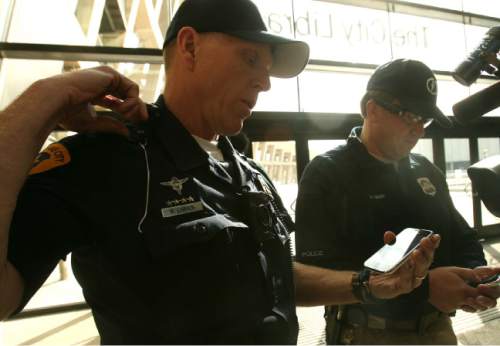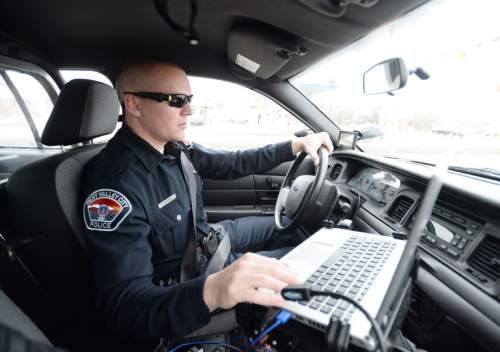This is an archived article that was published on sltrib.com in 2016, and information in the article may be outdated. It is provided only for personal research purposes and may not be reprinted.
This week, several hundred debaters at the Utah Capitol will dissect the controversies surrounding police body cameras from the perspective of having grown up in a world where surveillance is more ubiquitous than ever.
No, not lawmakers — high schoolers. In an annual mock legislative hearing Wednesday, students will debate how the cameras should be used, how their footage should be released to the public and how the government should store and keep the footage.
"Body-worn cameras create a unique public record that is more intrusive and more expensive to retain than any other type of public record," said Cameron Diehl, the director of government relations for the Utah League of Cities and Towns, which organizes the debate. "What is the right balance of personal privacy, public accountability, agency policy, government transparency and public safety?"
These questions are detailed in a pretend bill that doesn't exactly mirror a real piece of legislation on Capitol Hill this year, but it reflects the same issues that lawmakers face, Diehl said.
The students are all members of "youth councils" who learn about local government, attend city meetings and organize city events.
"We are curious to understand the perspective of youth council members, particularly because their generation is accustomed to the presence of cameras in daily life," Diehl added.
Lawmakers have tried before to tackle the issues surrounding body cameras, as police departments face greater scrutiny in light of controversial uses of force around the country. But last year, several lawmakers said they hoped instead to require local law-enforcement agencies to write and follow their own rules about how and when police body cameras should be used, rather than create detailed statewide standards.
That led some critics to say it could lead to uneven use of the cameras around the state and possibly undermine the public's faith in police.
As of Monday, the opening day of the 2016 general session, no body-camera bill had been introduced.
That leaves the high schoolers to continue the debate.
On Wednesday, the students will fill the roles of legislators, police chiefs, civil libertarians and members of the media, among others, for two debates. There will be two debates: one at 8 a.m. and another at 9:15 a.m., both in the auditorium of the State Office Building, according to a news release from the league.
mmcfall@sltrib.com Twitter: @MikeyPanda





